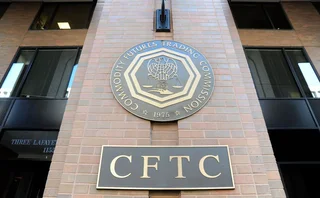
Jospin raises the spectre of Tobin
French prime minister Lionel Jospin has resurrected the debate over the Tobin tax – a tax on international capital flows designed to discourage short-term currency speculation – by publicly supporting the concept in an address to the French nation.
The Tobin concept was developed by American Nobel prize-winning economist James Tobin in the 1970s, as a means of stabilising currency markets by inhibiting short-term speculation. His idea came as the Bretton Woods international currency system that fixed the price of the dollar in terms of gold was breaking up.
Tobin proposed a 0.5% charge on currency transactions, which anti-globalisation groups subsequently have said could be used to help poorer economies. But other economists have questioned whether such a charge would have prevented the Asian, Russian or Turkish currency crises in recent years.
The American economist himself believes such a tax could only be introduced with widespread international agreement, since unilateral taxation would only shift money flows to other financial centres. The US has long been opposed to such a scheme, making its introduction extremely unlikely.
At the European level, both Germany and the UK are firmly against an anti-speculation charge that they believe would seriously distort the derivatives markets. German deputy prime minister Caio Kock-Weser told the Financial Times Deutschland that a tax on foreign exchange transactions “has charm but will never fly”.
Given the lack of international support, Jospin’s comments are viewed as politically motivated. With presidential elections due next year, Jospin appears to be wooing far-left support to make a serious challenge to incumbent president Jacques Chirac.
While Tobin appears a non-starter, Kock-Weser’s proposal that there should be more regulation of derivatives and hedge funds as an alternative to taxes will cause concern in the financial market-place. The G7-sponsored Financial Stability Forum, a group of regulators headed by Bank for International Settlements general manager Andrew Crockett, has already been looking into the regulation of hedge funds.
But the last report issued by the BIS on the subject found there was little concern about hedge funds presenting systemic risk concerns.
Only users who have a paid subscription or are part of a corporate subscription are able to print or copy content.
To access these options, along with all other subscription benefits, please contact info@risk.net or view our subscription options here: http://subscriptions.risk.net/subscribe
You are currently unable to print this content. Please contact info@risk.net to find out more.
You are currently unable to copy this content. Please contact info@risk.net to find out more.
Copyright Infopro Digital Limited. All rights reserved.
As outlined in our terms and conditions, https://www.infopro-digital.com/terms-and-conditions/subscriptions/ (point 2.4), printing is limited to a single copy.
If you would like to purchase additional rights please email info@risk.net
Copyright Infopro Digital Limited. All rights reserved.
You may share this content using our article tools. As outlined in our terms and conditions, https://www.infopro-digital.com/terms-and-conditions/subscriptions/ (clause 2.4), an Authorised User may only make one copy of the materials for their own personal use. You must also comply with the restrictions in clause 2.5.
If you would like to purchase additional rights please email info@risk.net
More on Regulation
US Basel equivalence questioned as EU patience wears thin
MEPs say unfaithful US implementation of Basel III could trigger review of access to EU markets
The Term €STR transition: challenges and market readiness
The progress, challenges and factors shaping the adoption of Term €STR as financial institutions transition from Euribor
CFTC takes red pen to swaps rules, but don’t call it a rollback
Lawyers and ex-regs say agency is fine-tuning and clarifying regulations, not eliminating them
EU edges closer to calming FRTB fund-linked fray
Dealers say temporary solution is a step in the right direction but won’t fully resolve all issues
European Commission changes tune on proposed FRTB multiplier
Banks fear departure from original diversification factor undermines case for permanent relief
Supervisors should be mindful of geopolitical risks, says IMF
Shock events cause sizeable swings in asset pricing, institution’s latest report highlights
Bowman won’t commit to stress-testing the tariff shock
Nominated Fed vice-chair stonewalls calls to run ad hoc scenario similar to 2020 Covid test
Fed’s Bowman to ‘prioritise’ SLR exemption for US Treasuries
Reinstating Covid-era relief is a ‘no brainer’, dealers say, as bond markets reel from tariff chaos







